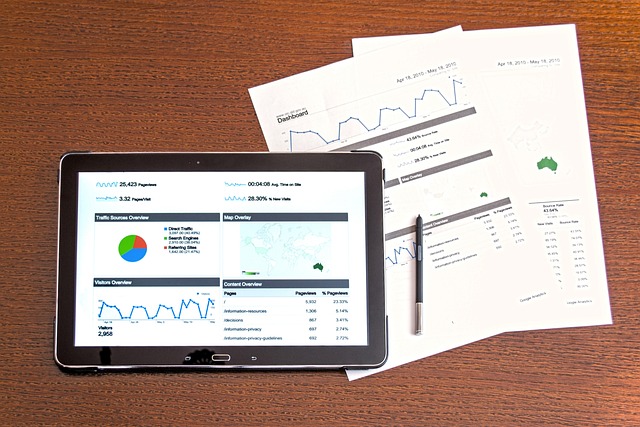When looking to sell your business in Maine, it's crucial to employ valuation methods tailored to the state's specific economic environment. The asset-based approach is favored for businesses with significant tangible assets, while alternative methods are necessary for those with intangible strengths like customer loyalty or intellectual property. Service-oriented and tech-driven enterprises should consider the earnings approach, which relies on historical financial data adjusted for Maine's trends to project future earnings. The market approach involves analyzing recent sales of similar Maine businesses to set a fair valuation baseline. Understanding Maine's economic landscape, including local and statewide conditions, revenue stability, competitive positioning, and unique attributes like proximity to natural resources or specialized expertise, is key to maximizing your business's value. Leveraging detailed financial records, comparable company analysis, discounted cash flow analysis, and EBITDA multiplier analysis, along with consulting experienced local professionals, will provide a comprehensive assessment of your business's worth. This holistic approach ensures that you can accurately reflect the unique aspects of the Maine market in your valuation, making it more appealing to buyers and facilitating a successful sale. Remember, for the best outcome when selling your business in Maine, consider all local factors and use a range of valuation methods to achieve an accurate and attractive valuation.
Exploring the nuances of valuing a business in Maine requires a tailored approach, reflecting the unique economic and market conditions of this coastal state. Entrepreneurs looking to ‘sell my business in Maine’ must grasp the various valuation methods that align with local dynamics. This article delves into the critical factors influencing your business’s worth, providing a comprehensive guide to selecting appropriate valuation techniques for Maine-based ventures. By harnessing insights from the state’s market landscape, you can ensure an accurate appraisal that reflects both the intrinsic value of your enterprise and its potential within the vibrant Maine economy.
- Understanding Business Valuation Methods for Sellers in Maine
- Key Factors Influencing the Value of Your Maine-Based Business
- Step-by-Step Guide to Applying the Right Valuation Techniques for Maine Entrepreneurs
- Leveraging Local Market Insights to Accurately Value Your Business for Sale in Maine
Understanding Business Valuation Methods for Sellers in Maine

When sell my business Maine becomes a consideration for entrepreneurs, understanding the various business valuation methods is paramount. The state of Maine, with its unique economic landscape and market conditions, requires sellers to tailor their approach to valuation accordingly. One of the primary methods employed is the asset-based approach, which assesses the value of a company by looking at its tangible assets, such as real estate, equipment, and inventory, minus any liabilities. This method is particularly relevant for Maine businesses, given the significance of natural resources and physical assets in the state’s economy. Additionally, for service-oriented or technology-driven enterprises, the earnings approach can be more suitable. This approach estimates the value of the business by projecting its future earnings based on past financial performance, considering factors like historical revenue trends, profitability margins, and industry growth prospects within the Maine market. Sellers should also be aware of the market approach, which involves analyzing comparable sales data of similar businesses in Maine to derive at a valuation. This method is useful for establishing a baseline value by comparing the subject business with others that have recently changed hands in the state. By understanding these valuation methods and applying them judiciously, sellers in Maine can navigate the market with greater confidence and achieve a fair valuation for their businesses.
Key Factors Influencing the Value of Your Maine-Based Business

When considering the valuation of your Maine-based business, particularly if you’re looking to sell your business in Maine, several key factors come into play that can significantly influence its market value. The first factor is the economic climate of the region, which includes both the local and broader economic trends affecting small businesses within Maine. A thriving economy can lead to increased demand for your products or services, thereby potentially increasing the value of your business. Additionally, the stability and growth trajectory of your revenue streams are crucial indicators to potential buyers. Consistent and growing income can make your business more attractive, as it suggests a sustainable and profitable operation post-sale.
Another significant factor is the competitive landscape within your industry in Maine. A strong market position, characterized by a loyal customer base, a robust supply chain, and efficient operations, positions your business favorably in negotiations. Moreover, unique aspects of your business, such as proprietary technology, intellectual property, or specialized expertise, can differentiate your enterprise from competitors, thereby enhancing its value. Location-specific advantages, like access to Maine’s natural resources or prime real estate, can also be a major draw for potential buyers looking to capitalize on these assets. In summary, understanding and optimizing these factors is essential when preparing to sell your business in Maine, ensuring that you achieve the maximum value for your life’s work.
Step-by-Step Guide to Applying the Right Valuation Techniques for Maine Entrepreneurs

When considering the sale of your business in Maine, it’s crucial to employ valuation techniques that accurately reflect your company’s worth. Entrepreneurs in this region can benefit from a tailored approach that takes into account the local economic landscape and market conditions. The first step in this process is to gather comprehensive financial data. This includes historical profit and loss statements, balance sheets, and cash flow analysis. These documents provide a clear picture of your business’s performance and are essential for any valuation method you choose.
Once your financial data is organized, you can apply various valuation methods to determine the fair market value of your enterprise. A common starting point is the application of comparable company analysis, where you examine the sales multiples of similar businesses in Maine that have recently been sold. This method offers a benchmark based on current market trends and helps to establish realistic expectations for your business’s valuation. Additionally, using discounted cash flow (DCF) analysis can provide a forward-looking perspective, estimating the present value of your business’s future cash flows. This technique is particularly useful if your business has significant growth potential or if its earnings are less stable.
In conjunction with these methods, it’s advisable to consider an earnings before interest, taxes, depreciation, and amortization (EBITDA) multiplier analysis. This approach evaluates the profitability of your operations by multiplying your business’s annual EBITDA by an industry-specific average multiple. By comparing this figure with similar businesses in the ‘sell my business Maine’ market, you can gauge how your company stacks up against competitors and understand its position in the marketplace.
To ensure the most accurate valuation, it’s often beneficial to combine these methods, providing a comprehensive view of your business’s value. Engaging with a professional appraiser or business broker who specializes in Maine’s market can further refine the valuation process, offering insights and strategies tailored to the local economy and regulatory environment. This expert guidance is invaluable when you’re ready to sell your business in Maine and aim to achieve the optimal outcome.
Leveraging Local Market Insights to Accurately Value Your Business for Sale in Maine

When considering the sale of your business in Maine, it’s crucial to tap into the nuances of the local market. Valuing your business based on Mainers’ preferences and economic indicators can significantly influence the accuracy of your valuation. Leveraging local market insights involves a deep understanding of the region’s consumer behavior, industry-specific trends, and the competitive landscape. For instance, assessing how seasonal fluctuations affect businesses in Maine, especially those in tourism or retail sectors, is pivotal for a realistic evaluation.
Local economic data, such as average sales per square foot or revenue per employee, can provide a baseline for valuation. Additionally, examining recent comparable sales within the state can offer tangible benchmarks to inform your business’s worth. Engaging with local business brokers and appraisers who specialize in Maine’s market can yield insights that account for regional factors like tax considerations, labor laws, and supply chain dynamics unique to the area. By integrating these granular insights into your valuation approach, you can ensure a more precise and attractive offering for potential buyers interested in “selling my business in Maine.”
When considering the sale of your business in Maine, accurately valuing your enterprise is paramount. This article has demystified the process by outlining essential valuation methods tailored for Maine sellers, highlighting the key factors that influence your business’s worth, and providing a practical guide to applying these techniques effectively. By leveraging local market insights, you can ensure a more precise valuation that reflects the true economic landscape of Maine. For those looking to ‘sell my business in Maine,’ this comprehensive approach will equip you with the knowledge and tools necessary to navigate the sale successfully. Remember to consider all aspects of your business’s operations and financial history to achieve a fair market value that attracts potential buyers and maximizes your return.
